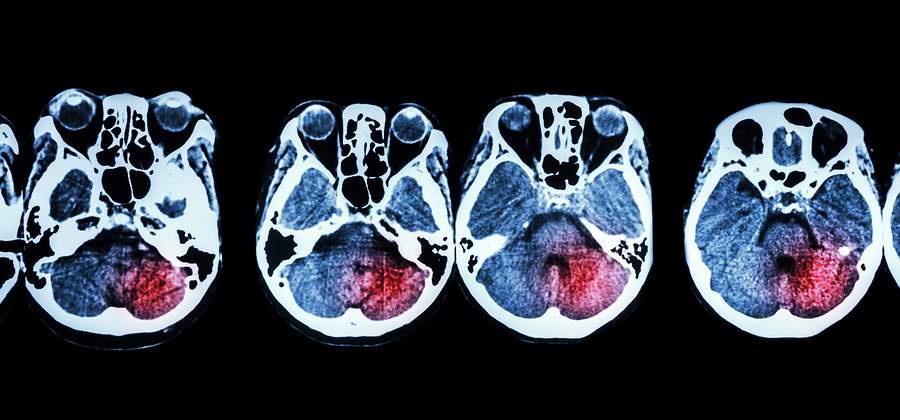A traumatic brain injury can cause a wide range of functional short- or long-term changes affecting thinking, sensation, language or emotions. The permanent consequences of having a TBI also range from whether the injury was mild or severe. It is also very important to emphasize the fact that there is no “typical” person with TBI. People who have experienced a TBI vary on many dimensions including: the severity of the initial injury, rant and completeness of physiological healing, types of functions affected, meaning of dysfunction in the individual’s life (in the context of his/her roles & values or goals), resources available to aid recovery and of function and a variety of others. Every person’s reaction to the injury will be different because of the complexity of the brain. The injured individual will experience only one, a few or most of the possible side effects. The possible permanent effects of moderate to severe brain injury can be discussed by understanding the questions that come along with the diagnosis.
How is judgment and other facets of cognition affected?
Cognitive skills with a moderate-to-severe brain injury most typically experience problems in basic cognitive skills: sustaining attention, concentrating on tasks at hand, and remembering newly learned material. These individuals may speak, think and solve problems slowly. Normal routines can be confusing if they are changed or when they are over stimulated, it exceeds their threshold. They may take too long to finish a task because they are unable to multitask or change to a different task without difficulties. Conversely, they may jump to conclusions or become impulsive for responses that they think are correct. Any abstract principles may be out of reach and may coordinate with their speech and language deficit. These impairments include: word-finding problems, understanding the language of others and similar instances.
One of the major areas affected by a TBI is referred to as executive functions or the intricate processing of large amounts of complicated information that we need to function creatively, proficiently and independently as beings in a multifaceted world. Usually individuals with TBI may be unable to function well in their social roles because of difficulty in planning ahead, in keeping track of time, in coordinating complex events, in making decisions based on broad input, in adapting to changes in life and in otherwise “being the executive” in one’s own life[1].
How are mood and behavior affected?
With TBI, the systems in the brain that control our social-emotional lives often are damaged. The consequences for the individual and for his or her significant others may be very difficult, as these changes may imply to them that “the person who once was” is “no longer there.” Thus, personality can be substantially or subtly modified following injury. The person who was once an optimist may now be depressed. The previously tactful and socially skilled negotiator may now be blurting comments that embarrass those around him/her. The person may also be characterized by a variety of other behaviors: dependent behaviors, emotional swings, lack of motivation, irritability, aggression, lethargy, being very uninhibited, and/or being unable to modify behavior to fit varying situations[1].
What other changes are possible after moderate/severe TBI?
Sensory: difficulties with interpretation of touch, temperature, movement, limb position and fine discrimination
Perceptual: the integration or patterning of sensory impressions into psychologically meaningful data
Vision: partial or total loss of vision, weakness of eye muscles and double vision (diplopia), blurred vision, problems judging distance, involuntary eye movements (nystagmus), and intolerance of light (photophobia)
Hearing: decrease or loss of hearing, ringing in the ears (tinnitus), increased sensitivity to sounds
Smell: loss or diminished sense of smell (anosmia)
Taste: loss or diminished sense of taste
Seizures: the convulsions associated with epilepsy that can be several types and can involve disruption in consciousness, sensory perception, or motor movements
Physical Changes: Physical paralysis/spasticity, Chronic pain, Control of bowel and bladder, Sleep disorders, Loss of stamina, Appetite changes, Regulation of body temperature, Menstrual difficulties[2]
Dolman Law Group Accident Injury Lawyers, PA
Persons with a TBI may not be able to perform the job that they had prior to the accident. They may be forced to take a lower paying job or not work at all. They often have anger issues, memory loss, chronic fatigue, seizures and other problems that can negatively affect the ability to perform almost any job. Loss of income over an average 30 year career can total over one million dollars, even for a low to moderate income earning individual. Add to that the pain and suffering, the diminished quality of life and the cost of future care and that $200,000.00 settlement mentioned earlier, should have been 10 times that amount.
If you or a loved one suffered a traumatic brain injury, no matter how mild or severe, contact the offices of Dolman Law. The attorneys at Dolman Law have compassion coupled with a vast knowledge of traumatic brain injury cases. They have received record awards for their clients in the past who suffered from traumatic brain injury. You cannot afford to risk the quality of your entire life by hiring just any attorney. Speak with an experienced traumatic brain injury attorney today and get the settlement you deserve. Call (727) 451-6900 for a free consultation today.
Dolman Law Group Accident Injury Lawyers, PA
800 North Belcher Road
Clearwater, Florida 33765
727-451-6900
References:
[1] What Impact Will Moderate or Severe TBI Have on a Person’s Life?
[2] Severe TBI Symptoms






